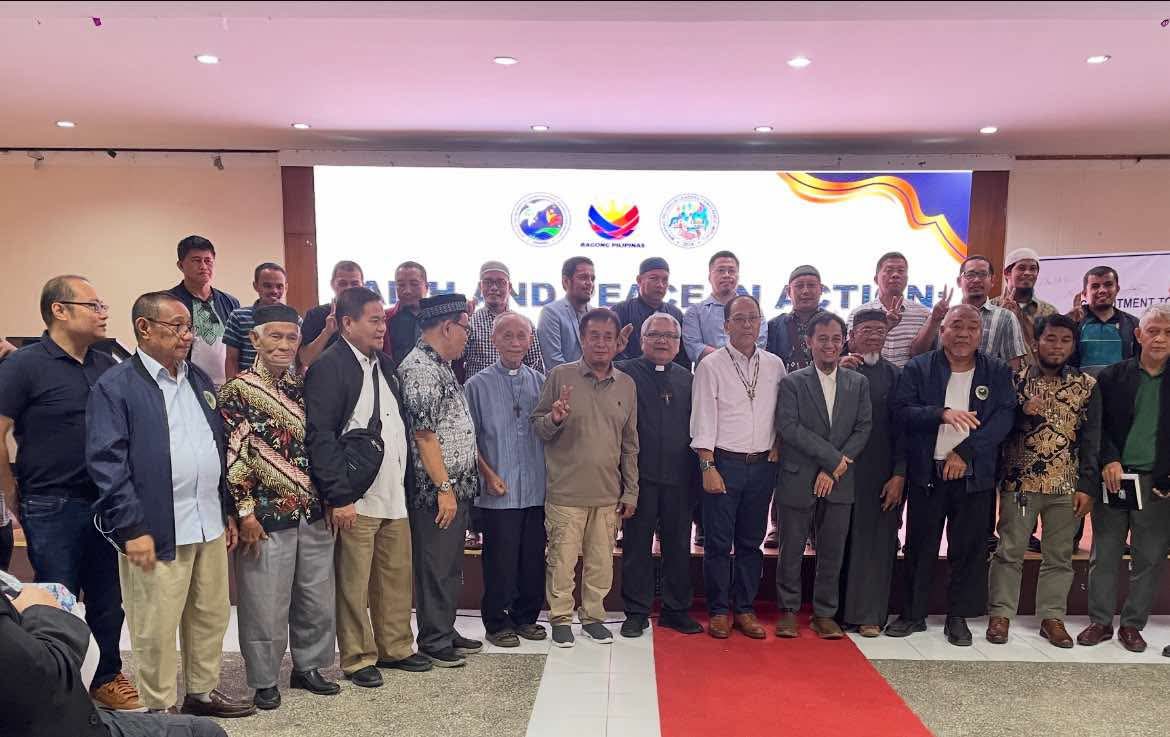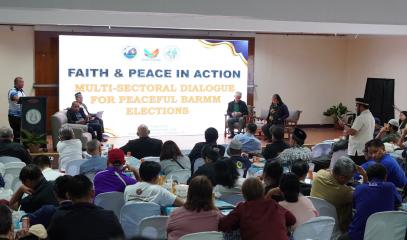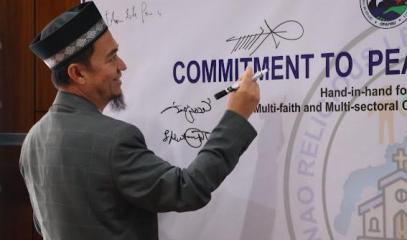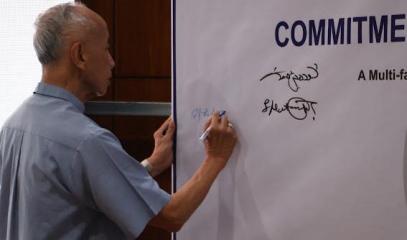Barmm, Islamic and Christian religious leaders call for fair and peaceful elections
ahead of the vote, they play a ‘crucial role’ in guaranteeing the electoral process. On 5 August, a MiRLeC meeting was considered a ‘moment of shared introspection’ and a ‘project for a fairer electoral future.’ StAengthening the process of knowledge, especially among young people, to prevent ‘manipulation.’
Manila (AsiaNews) - Ahead of the October elections in Bangsamoro, religious leaders and civil society are playing a ‘crucial role’ in ensuring a ‘fair’ electoral process in the first administrative vote in the Muslim-majority autonomous region in Muslim Mindanao (Barmm), southern Philippines. To foster this, leaders of different faiths and denominations have drawn up a peace plan entitled: ‘From dialogue to action for the 2025 Barmm elections’.
With this in mind, on 5 August, a multi-sector dialogue of the MiRLeC (Mindanao Religious Leaders Conference) entitled ‘Faith and Peace in Action, a Multi-Sector Dialogue for Peaceful Elections in the BAMM’ was held at the Catholic University of Notre Dame in Cotabato City. For the participants, this event was much more than just a meeting of leaders.
When asked by AsiaNews, Fr. Rex L. Rocamora, executive secretary of the Catholic Bishops' Conference of the Philippines (CBCP) - Episcopal Commission for Interreligious Dialogue, explained: ‘It was a profound moment of shared introspection and a plan for a more just electoral future.’
The priest added that ‘the challenge now is to transform the powerful insights that emerged into concrete actions that can guarantee peaceful and credible elections. The path forward, illuminated by the different voices present at the event, requires a strategic application of moral, spiritual and community-based solutions,’ Fr. Rocamora continued.
The main task is to empower voters and combat the systemic problems of vote buying and trading, corruption and political violence.
A speaker from the Supreme Council of Ulema pointed out that many young voters are uninformed about the parliamentary system, which makes them vulnerable to manipulation. The solution, therefore, lies in proactive and widespread voter education.
The two khutba (sermons) cited in the dialogue – “Democratic politics: the context of Islam and Bangsamoro” and “The parliamentary system of government in the context of Islam and Bangsamoro” – provide religious leaders with ready-made material to educate their followers on the moral and Islamic principles of good governance.
This can be a powerful counter-narrative to political influence and a practical step for imams and asatidz. In this regard, Mohammad Nadzir Ebil, secretary general of Hayato Ulama and vice president of MiRLeC, stressed that “building trust” in the electoral system is “fundamental” and can only be achieved “through a collective commitment to ethical principles”.
Religious leaders, regardless of their beliefs, are in a privileged position to lead this change. The appeal by Monsignor Edwin A. de la Peña, chairman of the board of directors of MiRLeC and CBCP-ECID (Episcopal Commission for Interreligious Dialogue), for religious groups to ‘organise their own political forums’ is a ‘pragmatic’ approach to candidate selection. Protestant Bishop Mark Francis Dimerin, of the Philippine Council of Evangelical Churches (PCE), reiterated the Catholic position, adding that religious organisations must be at the forefront of this moral campaign, not as political actors but as moral compasses.
A central theme of the dialogue, reinforced by a video message from Cardinal Orlando Beltran Quevedo, former archbishop of Cotabato, is “the urgent need to include marginalised sectors”. Hamid Aminoddin D. Barra added that a fundamental part of this effort is “maintaining the family structure and ensuring the proper education of children”.
The Islamic religious leader then stressed that ‘Muslim voters should prioritise the fundamental Islamic values of justice, responsibility and compassion.’
In February 2019, then-President Rodrigo Duterte entrusted the leadership of the new Bangsamoro Autonomous Region in Muslim Mindanao (Barmm) to Al Hajj Murad Ebrahim, leader of the MILF, who assumed the position of interim chief minister.
Since then, the rebels - who fought a bloody battle for autonomy for decades, with 150,000 deaths since the 1970s - have become guarantors of peace and stability in the Muslim-majority territory of Mindanao Island. Murad led the 80 members of the BTA, which governed the five provinces of the region until the election of the members of its Parliament.
The BAMM was created after the ratification of the Bangsamoro Organic Law (BOL), the product of negotiations between Manila and the MILF. In two votes (21 January and 6 February 2019), a referendum established that the new region is composed of the provinces of Lanao del Sur, Maguindanao, Basilan, Sulu and Tawi-Tawi, as well as the cities of Marawi, Lamitan, Cotabato and 63 villages in North Cotabato.
However, divisions emerged from the very beginning of the new entity: the choice of MILF, representing the Maguindanao ethnic group, to lead the three-year political transition phase fuelled discontent among other Islamic ethnic groups, such as the Tausug, who declared their preference for a federal structure, and the Maranao.
Fears, especially regarding religious freedom, characterised Christians' initial distrust of the law. In the past, Catholic leaders in Mindanao have expressed support for the autonomy project, calling the Bol “the last real chance for a just and lasting peace in Mindanao”.
The vote was initially scheduled for May, along with mid-term elections, but President Ferdinand Marcos Jr. postponed it to 13 October due to lack of funds and outbreaks of violence.
02/06/2018 07:43










.png)










